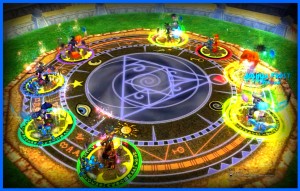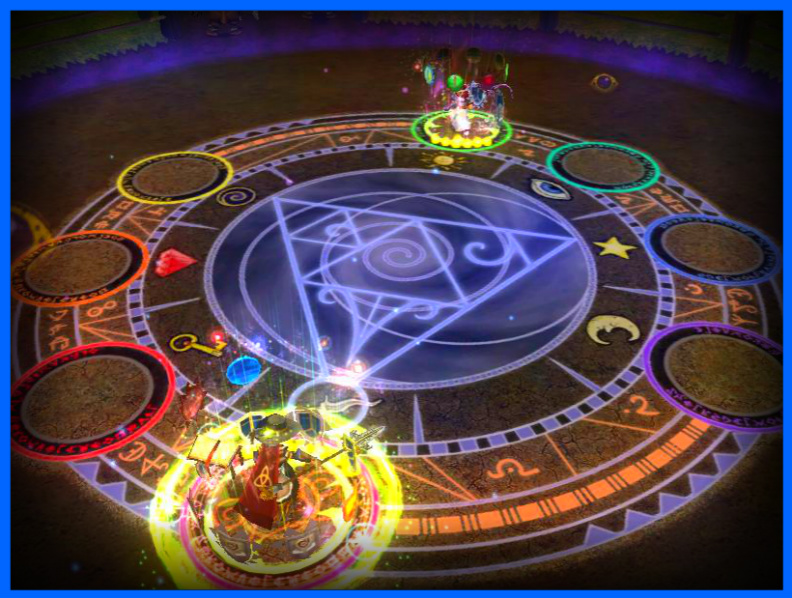August 13, 2013 March 10, 2019

Wizard101 The Art of War #1:
Laying Plans
The Art of War is one of the most well remembered pieces on waging warfare in history, and its lessons have been applied in the military, business and countless other fields. Wizard101 is just as competitive, and if you’re only starting out, you need to learn how to properly approach the arena. Strategies, plans, tactics.
Welcome to Wizard101 PvP.
This is the Art of War.
The Art of “Laying Plans
In the first chapter, Sun Tzu speaks on the importance of warfare to the State. “It is a matter of life and death, a road either to safety or to ruin.” In essence, he’s stressing that since warfare is a necessity, it’s important for a general (in this case, the reader) to learn how to wage it well. If you want to succeed in Wizard101 PvP—reaching Warlord, making the leaderboard, or any other goal you have—you must learn how to wage war well.
The title of this chapter is just slightly misleading in its translation. Ts’ao Kung defines the meaning of the Chinese as the things you need to consider when forming a plan against an opponent. The best plans will take as many factors into account as the planner can manage.
The Five Constant Factors
Sun Tzu explains that “the art of war, then, is governed by five constant factors”. He goes on to list these factors:
- The Moral Law
- Heaven and Earth
- The Commander
- Method and Discipline
It’s important to understand that this book was written for a general/ruler leading an army/country. So in 1v1 PvP, lessons on how to deal large groups of people can lose us some. Still, there are some good truths to be learned here.
The Moral Law causes the people to be in complete accord with their ruler, so that they will follow him regardless of their lives, undismayed by any danger.
 This factor is more prevalent in team. If by some chance you’re leading the team, your teammates need to agree with your leadership and trust you enough to follow through on your plans. Commentator Wang Tzu makes an interesting point: “Without constant practice, the officers will be nervous and undecided when mustering for battle.” Practicing with your team is a solid way to show your teammates that they can trust you in the real battle.
This factor is more prevalent in team. If by some chance you’re leading the team, your teammates need to agree with your leadership and trust you enough to follow through on your plans. Commentator Wang Tzu makes an interesting point: “Without constant practice, the officers will be nervous and undecided when mustering for battle.” Practicing with your team is a solid way to show your teammates that they can trust you in the real battle.
The second part of Wang Tzu’s comment is good for 1v1: “Without constant practice, the general will be wavering and irresolute when the crisis is at hand.” Few things other than practice and match experience will prepare you for crisis situations. Situations where you often have 1-2 turns to act or die. Have the same kind of fortitude in 1v1 that soldiers would want to see in their general
Heaven signifies night and day, cold and heat, times and seasons. Earth comprises distances, great and small; danger and security; open ground and narrow passes…
Wizard has a static battle system. There’s no battlefield we move through, no weather or environment we need to be afraid of. So at first Heaven and Earth may look like they don’t apply.
Let’s think of Heaven and Earth this way.
- Earth: Physical factors. What is on the actual battlefield. A trap, or a shield, etc.
- Heaven: Non-physical factors. Your emotions and mood, real life interruptions, hindrances and benefits outside the game.
 With Earth, the ‘landscape’ of the duel circle is important to keep in mind when planning. What has your opponent played? What charms/bubble/wards does he have? Can anything on the field be of use to me? With Heaven, factors outside the game. Do I need to leave the computer soon for real life obligations. I’ve been in a slump recently, so am I coming to the match with a defeated attitude. Etc.
With Earth, the ‘landscape’ of the duel circle is important to keep in mind when planning. What has your opponent played? What charms/bubble/wards does he have? Can anything on the field be of use to me? With Heaven, factors outside the game. Do I need to leave the computer soon for real life obligations. I’ve been in a slump recently, so am I coming to the match with a defeated attitude. Etc.
As a player, you need to be aware of your environment and situation, and take them into account.
The Commander stands for the virtues of wisdom, sincerity, benevolence, courage and strictness.
Pretty straightforward. In team and in 1v1, being an overall positive person is favorable. Your teammates won’t follow someone who treats them badly, and your enemies won’t exactly be easier on you if you mock or harass them. Be the person who improves the overall experience for everyone, friend and opponent.
Method and Discipline are to be understood the marshaling of the army in its proper subdivisions, the graduations of rank among the officers, the maintenance of roads by which supplies may reach the army, and the control of military expenditure.
 Also straightforward. The team/1v1’er who is best managed, both in discipline and resources, will have the advantage. Make sure you’re stocked on what you will need for your plan. Whether that be cards, TC, gear, and so on. Have what you need for what you intend to do.
Also straightforward. The team/1v1’er who is best managed, both in discipline and resources, will have the advantage. Make sure you’re stocked on what you will need for your plan. Whether that be cards, TC, gear, and so on. Have what you need for what you intend to do.
In team especially, make sure everyone’s on the same page. Call out opponent’s schools in group chat. If each member has a role, make sure they know what it is and can perform it properly (Myth knows she needs to be ready to quake when needed, holds onto one just in case). Communication in team is a resource of vital importance.
Sun Tzu goes on to show questions based on these principles that, when asked, can determine the outcome of the battle. One major thing to take away from this chapter lies in the title itself, Laying Plans. Sun Tzu believed that every battle was decided before it had even begun: in the planning stage. And if one of the most respected military personalities in history is convinced of that, it would be wise to at least understand its importance.
What you come into the battle with—knowledge, resources, ability, etc.—are pivotal in forming your game plan, and will often determine who wins the fight.